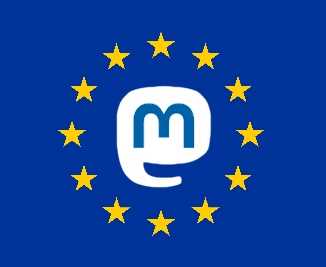The European Data Protection Supervisor (EDPS) announced on Thursday that it has launched platforms based on Mastodon and PeerTube software.
The social network proclaimed competitor of Twitter, Mastodon, is attracting more and more users. The platform, created in 2016 by a young German developer now in his thirties, recruited more than 40,000 new users on April 26, and even a little more the next day, double its usual standards. Now, the authorities of the European Union are landing on the platform. Explanations.
The EDPS opens its own server on Mastodon
The European Data Protection Supervisor, equivalent to the CNIL at EU level, announces it himself: “ The EDPS launches today the public pilot phase of two social media platforms: EU Voice and EU Video. So what is it, more concretely?
Unsurprisingly, and after the takeover of Twitter by billionaire Elon Musk, which is already teeming with ideas on security and freedom of expression for the little blue bird, the European Union has shown a real interest in the Mastodon platform. Open source, free and decentralized, it claims real independence vis-à-vis the “giants” and is gradually developing with the help of donations (therefore no advertisements). It also has over 2,000 servers directly operated by independent individuals and organizations.
On Mastodon, the EDPS has launched its own server, called EU Voice, and therefore based on the open source software. More specifically, it has created its own community (an “instance”, in Mastodon jargon), which allows its manager to carry out its own moderation. The principle is then more or less identical to Twitter, with the idea of microblogging limited to 500 characters per “squeak” or message (we expect your best puns in comments), but also a private messaging system, a notification system, etc
A project initiated by the EDPS, but also open to all institutions of the European Union
On its EU Voice server, the independent European authority intends to encourage interaction with the public, in particular by sharing short texts, images and videos. On EU Video, the EDPS will base interactions on sharing, uploading and commenting on videos and podcasts. This second platform is based on the free software PeerTube.
The overall idea for the EDPS is to unite as many institutions, bodies and agencies of the European Union as possible around the EU Voice and EU Video platforms. On the first mentioned, several authorities are already playing the game, such as the Court of Justice of the European Union, the European Commission or the Agency for Fundamental Rights of the EU.
” With the pilot launch of EU Voice and EU Video, we aim to provide alternative social media platforms that put people and their rights to privacy and data protection first. Concretely, this means, for example, that EU Voice and EU Video do not rely on transfers of personal data to countries outside the European Union and the European Economic Area; there are no advertisements on the platforms; and there is no profiling of people likely to use the platforms. These and other measures give individuals choice and control over how their personal data is used. ”, explains the European Data Protection Supervisor, Wojciech Wiewiórowski.
The EU is therefore pursuing its dreams of data and digital sovereignty, to perhaps one day truly foster Europe’s independence in the digital ecosystem. Before that, we will have to federate and convince European citizens, and that is far from won.
On the same subject :
EU forces GAFAM to reveal how their algorithms work
Source : European Union

9